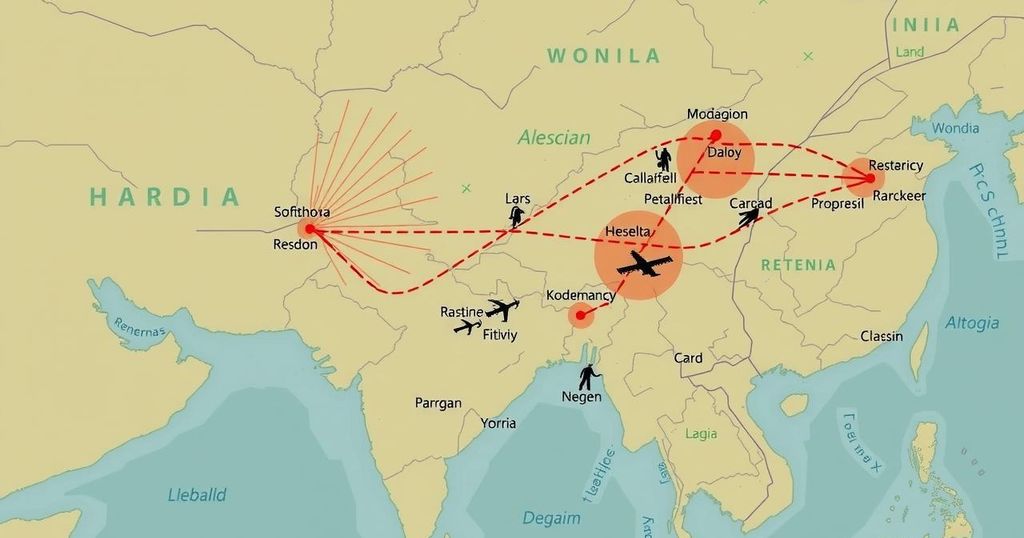The Atlantic Reveals Sensitive US Military Chat About Yemen Attack Plans
The Atlantic released full details of a group chat among Trump administration officials about impending military action in Yemen. Initial claims of the chat’s security were contested as senior officials shared precise strike details via the unsecured Signal app. The White House labeled the story a hoax while officials defended their actions, raising concerns over information security.
On March 26, The Atlantic published the full disclosures of a group chat that included senior Trump administration officials sharing imminent attack plans against Houthi rebels in Yemen. These messages detailed specific strike times and aircraft, revealing that they were communicated through the unsecured Signal messaging app. This incident raises significant security concerns regarding information sharing among government officials.
Initially, The Atlantic reported only the general outlines of the chat due to the potential implications of revealing classified information. However, following the Trump administration’s dismissal of any classified material, the publication decided to release the full chat content. The White House, in a robust defense, rejected the magazine’s claims, labeling them as a fabricated narrative.
Defense Secretary Pete Hegseth acted as a key participant in the chat alongside Vice President JD Vance and CIA Director John Ratcliffe. The chat contained derogatory remarks regarding European allies and included precise tactical information just hours before military operations commenced on March 15. Such specificity is not typical for disclosed military operations, raising alarm about potential risks to U.S. forces and allies.
The text transcripts showed Hegseth discussing weather conditions and operational details such as “1410: More F-18s LAUNCH (2nd strike package).” National Security Advisor Mike Waltz provided live updates after the strikes, further corroborating the sensitivity of the shared information. He later acknowledged accidentally including journalist Jeffrey Goldberg in the chat due to a technical error.
In reaction to the chat being published, Vice President Vance criticized The Atlantic’s coverage as exaggerated, asserting that no classified or operational details were included. The White House maintained that the remarks made regarding the extent of the published material were entirely erroneous, dismissing the situation as a hoax. Overall, this incident highlights critical challenges faced in the secure sharing of sensitive information among high-ranking government officials.
In conclusion, The Atlantic’s publication of detailed messages from a Trump administration group chat has sparked significant controversy and raised security concerns regarding information handling. Top officials’ claims of no classified content contrast sharply with the specificity of the information shared. As the White House firmly denies any wrongdoing and characterizes the report as a hoax, this incident showcases substantial vulnerabilities within governmental communication practices.
Original Source: www.lemonde.fr








Post Comment